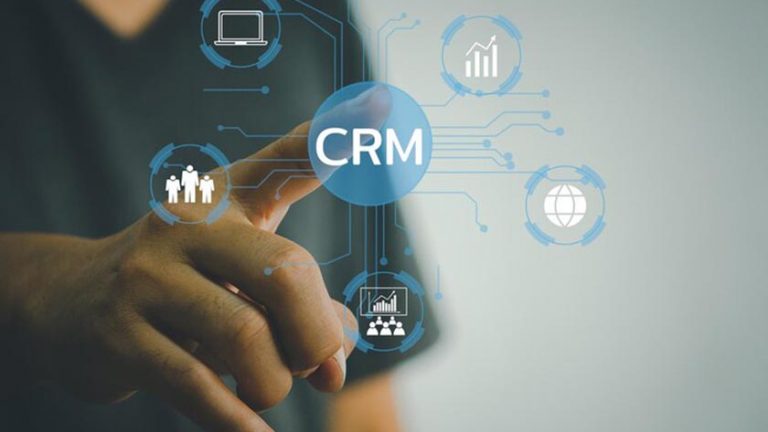CRM, Customer Relationship Management, has been around for some time now. It was first implemented in the enterprise sector by sales and marketing teams. However, in recent years CRM has seen a significant rise in popularity as a tool for managing both personal and professional relationships for businesses of all sizes.
The most successful salespeople know the importance of keeping track of their prospects and clients.
Whether you’re a sales executive or a rising star in the business, having a CRM (Customer Relationship Management) can help you keep notes on your contacts and prospects, nurture existing relationships, and even identify potential leads.
In this article, I’ll highlight the best CRM for networking, its importance, benefits, features and verdict.
Why Do You Need a CRM for Networking?
- A networking CRM helps you find the leads, feedback, and support that most businesses can’t find on their own.
- It will help you focus on the conversations with the people who have the most potential to grow your business and make more sales.
- It will give you a way to track your networking meetings and follow up with potential clients and network contacts in a manner that’s easy to follow and understand.
- It offers you a way to continue communicating and staying in touch with the contacts that are most valuable to you, while not being bogged down by all of the people who aren’t worth your time.
- It provides a way to find even more quality leads, customers, referrals, and possible partners than you would have found otherwise.
- It is something that you can use yourself and train your staff to use in order to free up more of your own time for making sales and closing deals.
How Can CRM Benefit My Business?
Communication between customers and your business is vital for a healthy relationship. Even if you have the best product in your market, you won’t have the business you need to sustain your company if you do not keep your customers happy.
Customer relationship management (CRM) has been around for a long time, but just like most technology, it has evolved over time. CRM is now available to small businesses as well as large corporations.
The main purpose of CRM is to collect and store data with potential customers. This data can be contact information or demographic data, such as age and gender information.
The data will help you follow up with your customers in the future, but that doesn’t mean that you spam the customer or annoy them – keep in mind the age of your customer and always ask yourself “would I want to get this in my email?”
If the answer is no, then do not send it. Users of CRM are able to interact with their database in different ways, such as through emails, phone calls, text messages and social media. If one way is not working, you can try another.
You will also be able to see any trends about your customers, such as what time of day they contact you most or what day of the week they are most likely to contact you.
What Are the Key Features of CRM for Networking?
As a business grows, it becomes increasingly difficult to manage customer relationships. Without an organised system for storing and communicating with contacts, business owners lose valuable opportunities for making sales and gaining loyal customers.
CRM for networking, also known as the Contact Relationship Management system, is a critical tool for any business growth strategy.
It allows you to automate your sales and marketing activities by making contacts and relationships much more organized and efficient.
Today, it is a must-have tool for every type of business as it helps you stay in touch with your leads and customers and receive feedback more quickly than any email or phone call would.
Below you will find the list of the key features that make CRM for networking a perfect choice for your business:
- CRM for networking allows you to manage your sales pipeline in detail, which allows you to stay on top of your contacts and leads at all times;
- It greatly reduces the amount of time needed to follow up on prospects, as well as the number of appointments that you forgot to schedule or lose track of;
- CRM for messaging is great for increasing the number of qualified leads that come into your business as every new contact automatically gets assigned a lead score and their specific details are marked as follow-up actions in the system;
- CRM for networking is designed for businesses of all sizes, from small networks of business contacts to large corporations that have thousands or even millions of clients and employees.
A network is a lot more than simply a list of contacts within your organization. It’s a vibrant, dynamic culture that’s tied together by common goals and a shared vision.
There should be a way to capture and efficiently manage all the information related to your people in this network, instead of having to rely solely on emails and spreadsheets for communication.
Customer Relationship Management (CRM) for social networking is a powerful tool that can help you organize and track your contacts in real-time.
It can also help you achieve and maintain the following:
- Improved efficiency
- Streamlined communications
- Increased productivity
- Enhanced collaboration
The key to ensuring that these benefits are achieved is by implementing an efficient CRM system within your organization’s network. A CRM system will provide you with an accurate and complete database of all contacts in your network, identify potential opportunities, organize closings, and develop long-lasting business relationships.
Why Is HubSpot the Best CRM for Networking?
When you’re in the midst of a big networking opportunity, you need to be able to quickly connect with all the right people.
That’s why HubSpot made it easy for you to enter information about all your contacts into one centralized database, called your CRM (Customer Relationship Management) system. If you want to more about HubSpot then you’ll find this article helpful ‘ Is HubSpot Marketing CRM All You Need?
Why is HubSpot the best CRM for networking?
- Creating contacts is tedious.
- Making a note of who you met at an event is painful.
- Keeping tabs on all of your relationships is such a hassle.
The truth is, most sales and marketing teams use their CRM in pretty much the exact opposite way it was intended. Instead of focusing on sales opportunities, nurturing leads, and keeping customers happy, most sales teams use their CRM to log data about people they already know – contacts and leads. If you found the above-mentioned reasons painful then HubSpot is ideal for you. It will make you all the stuff automatically. Get started with HubSpot and enjoy a 14-day free trial now.
Summary
You may often hear it said that CRM is an important tool for businesses to help market their products and services. This is true. CRM can help you target potential customers and connect with them in ways you were unable to do previously.
Clear, simple and easy-to-use CRMs for networking make all the difference when it comes to managing your business, so it’s important that you fully understand all of the benefits they have to offer, as well as pay attention to all the features that they include.
HubSpot created the latest customer relationship management (CRM) tool, Networking. It’s a sales tool that helps you establish connections, get meaningful introductions, and warm-up leads wherever you are, whenever you need to. So, what are you waiting for? It’s time to see a boom in your business. Take Me To HubSpot.





